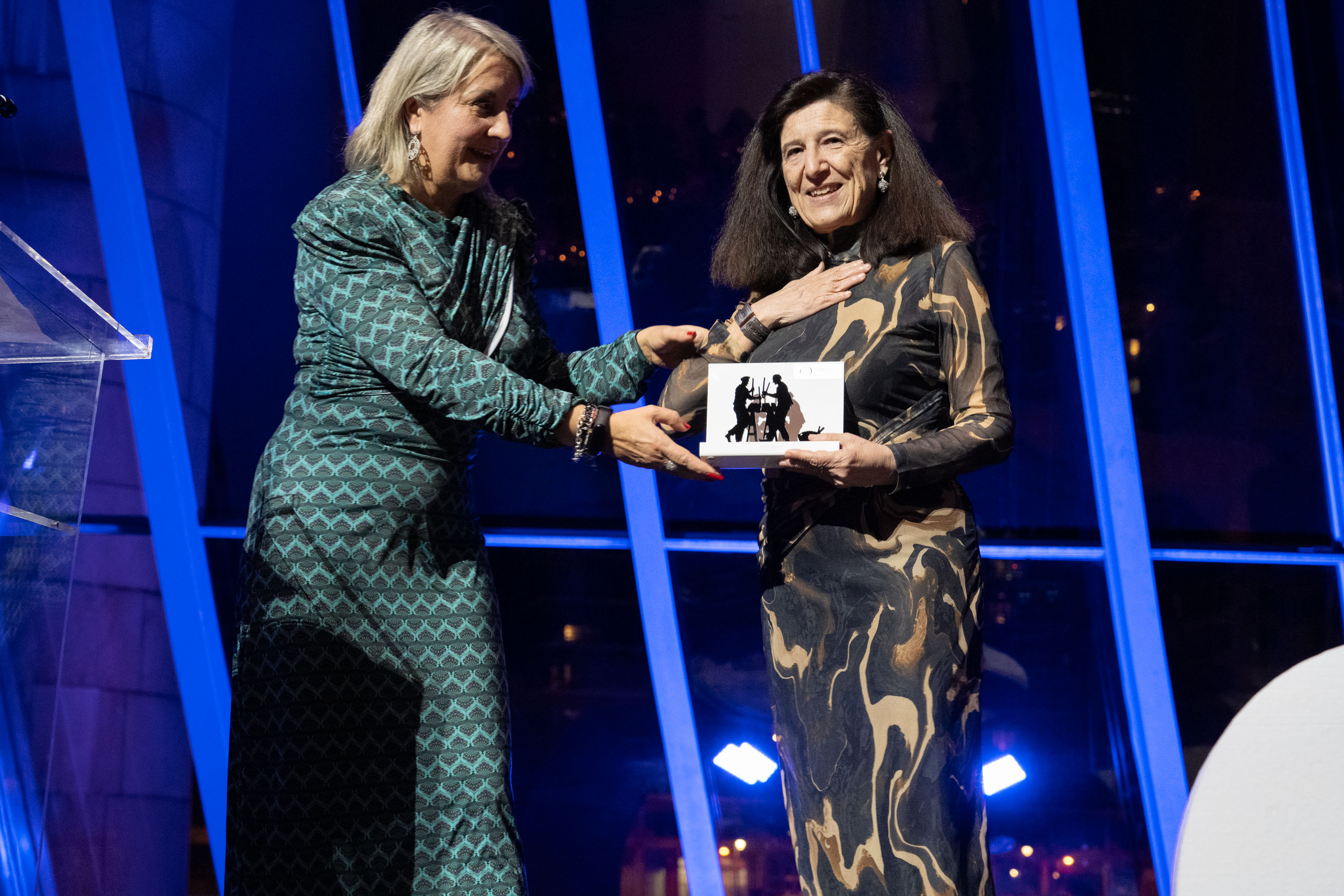When Alicia Coduras joined the Global Entrepreneurship Monitor (GEM) in Spain more than two decades ago, she didn’t just bring statistical expertise. She brought vision, discipline, and a deep sense of purpose. This year, GEM Spain recognised her extraordinary contributions, honoring a career defined by scientific rigor and collaborative leadership at a special ceremony commemorating 25 years of GEM Spain.
Alicia began her journey with GEM while based at IE Business School in Madrid, working closely with a small team committed to launching GEM in Spain.
“This recognition is meaningful to me,” Alicia says. “But more than anything, I see it as a tribute to the many people I’ve had the privilege to work with: researchers, administrators, and institutional partners who believed in GEM’s value from the very beginning.”
With a PhD in Political and Public Administration Sciences from the University Pompeu Fabra and a strong background in social research across sectors like health, transport, and tourism, Alicia helped embed GEM’s findings into national conversations about entrepreneurship. During the early 2000s, as entrepreneurship gained traction in Spain, GEM reports became key tools for government ministries, offering data-backed insights for policy design.
Alicia reflects on countless milestones: the publication of the first GEM Spain report, the establishment of regional research teams, presentations to policymakers, and years of building connections at global research conferences.
“Over time, GEM Spain became more than a data project — it grew into a true research network,” she notes. “It gave us the opportunity to create monographs on biotech, CSR, high-growth firms, and more. And it provided visibility to regional dynamics that might otherwise have been overlooked.”
She quickly became a vital part of GEM’s global expansion, helping shape its methodology and ultimately serving as the long-time coordinator of the National Expert Survey (NES) – a role that has positioned her at the heart of GEM’s research architecture. In addition she is also a member of the GEM Saudi Arabia team, where she supports efforts to align entrepreneurship data with the Kingdom’s ambitious economic transformation agenda.
Her global perspective has reinforced her belief that GEM is not just about tracking trends — it’s about empowering policymakers to act. Over the course of her GEM career, she has celebrated several proud milestones:
- When Spain was recognised with the GEM award for the most developed national team in the world.
- Participating in a high-level session alongside Aileen Ionescu with the Secretary of State for Small and Medium Enterprises in Oman to discuss and analyze the country’s GEM results.
- Seeing GEM data play a critical role in highlighting Saudi Arabia’s progress in improving its entrepreneurial environment and increasing business consolidation rates.
- Receiving the Research Award at Nebrija University in 2014 for her leadership in developing the university’s Entrepreneurship Chair and publishing extensively in the field.
- Publishing the first academic articles to use QCA methodology with GEM data.
- Developing the ERMET tool in 2016, which measures Readiness for Entrepreneurship based on her GEM experience. ERMET has gained international recognition and is now used by organisations like the Lobeck Taylor Family Foundation to support local entrepreneurial development in Tulsa and beyond.
For many GEM researchers, there is great pride to be taken from such achievements. Also of importance is the collegiality of being part of the GEM family. On that note, some of the most special moments for Alicia are:
“The most special moment for me, without a doubt, was when Dr. Michael Hay asked me to take charge of the NES Coordination in 2007,” Alicia said. “I felt very honored and I will never forget it. I thank him and the GEM Board for this great opportunity and for everything I learned.”
Her advice for new GEM teams?
“Don’t focus only on how high or low the numbers are. Focus on how your findings fit the broader needs of your country. Be active partners to your governments — you are offering valuable information that can shape the future.”

